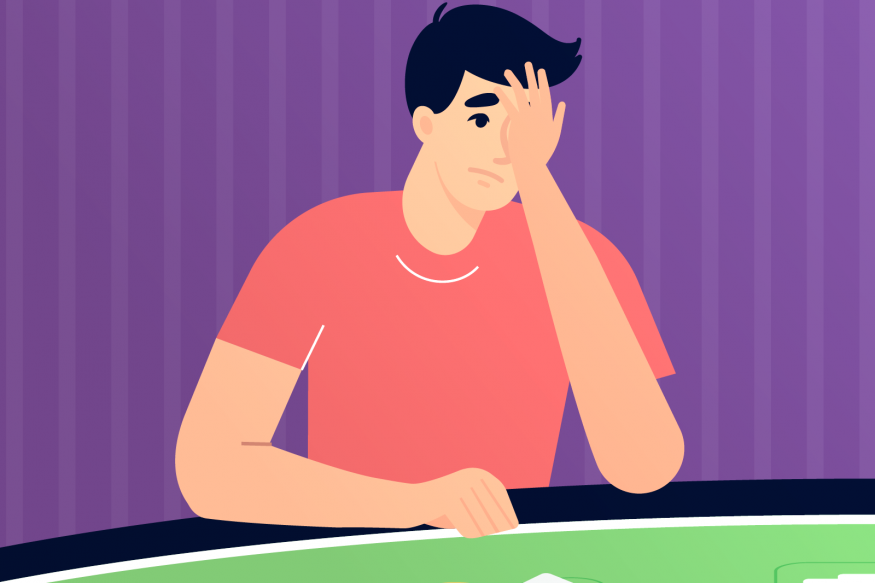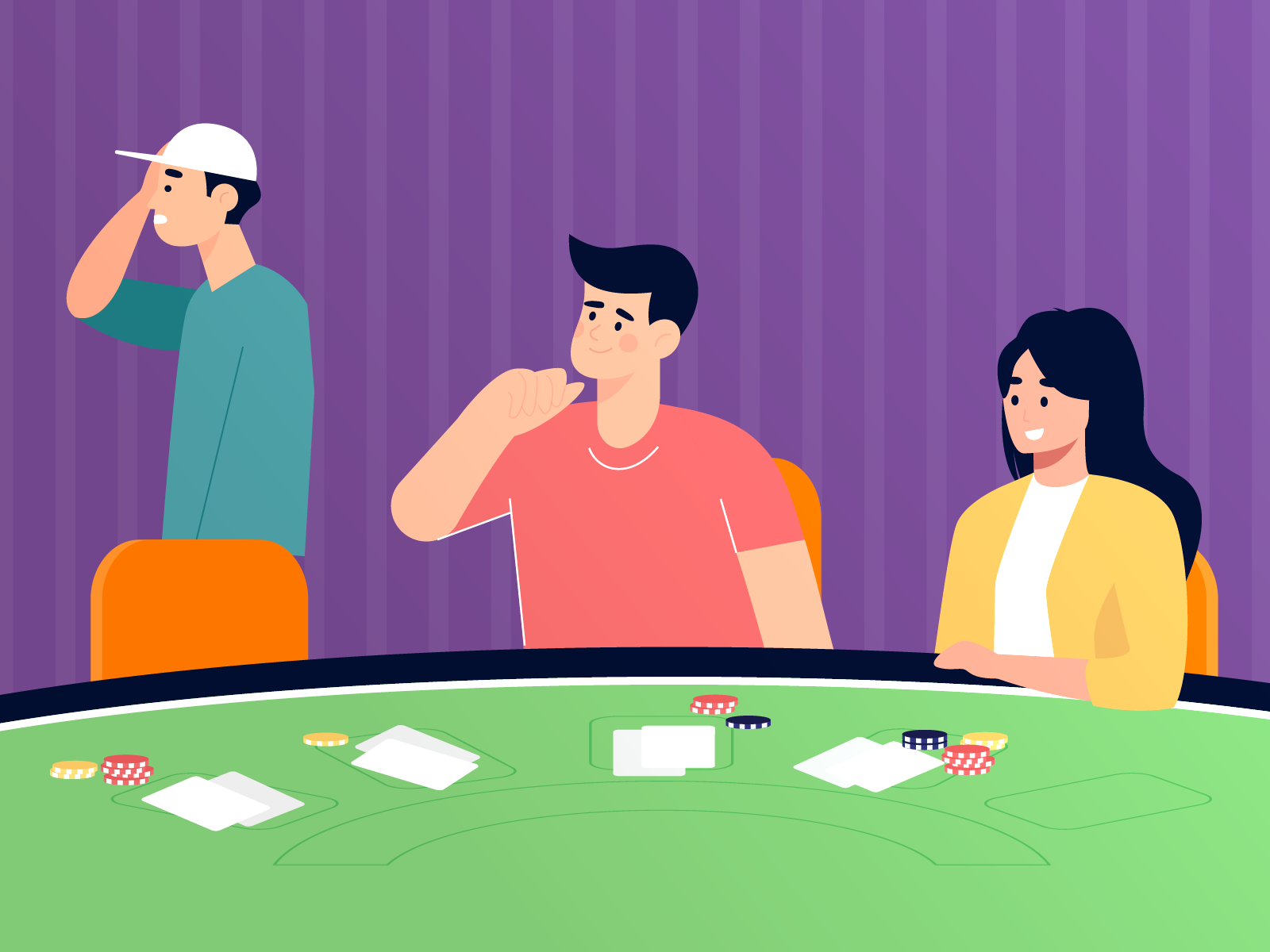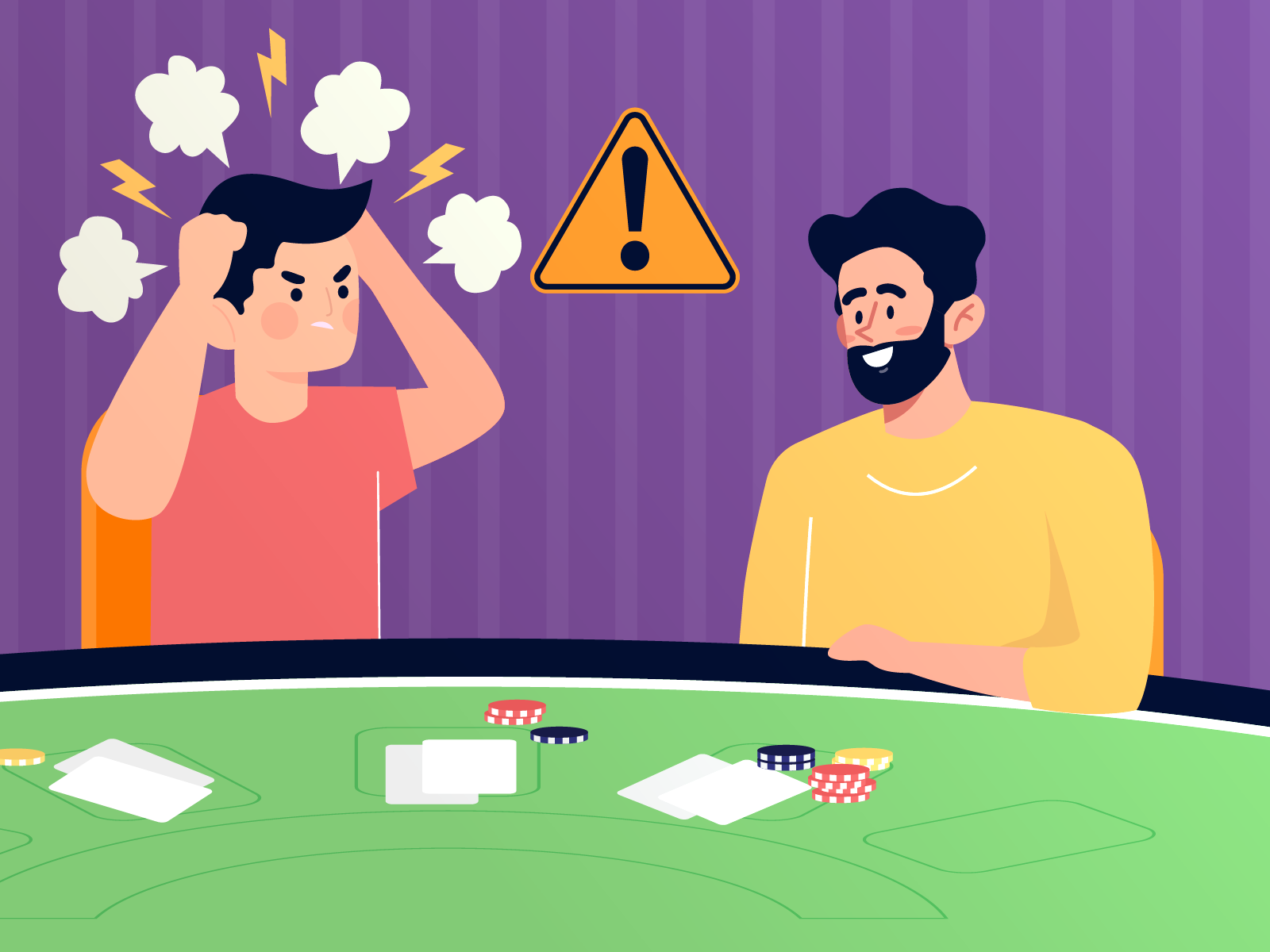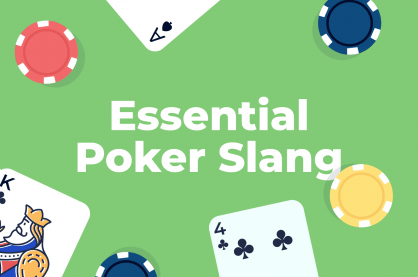7 Top Tips For Dealing With Bad Beats In Poker

Losses in poker are inevitable – no matter how good you are.
Whether you’re playing cash games or tournaments, you will experience some devastating losses in your poker career, which is why you have to train yourself to be ready to take a big loss at any time.
The worst part is that many losses come as a result of great plays. While this may sound illogical, it’s completely true.
Since luck has a major impact on every hand of poker, you’re going to lose hands that you play perfectly from time to time, whether you are a victim of a bad beat or a cooler.
To best prepare you for such situations, we’ll explain what bad beats are, how they differ from coolers, and what strategies you can implement to ensure you are correctly dealing with them.
What Is A Bad Beat In Poker?
A bad beat is when you lose a hand, despite having been a big favorite to win.
In every poker hand, there’s a favorite and an underdog.
If you watch poker on TV, you’ll see that most shows display the odds of each player winning the hand before the flop, on the flop, and on the turn. The percentages change all the time.
An example of a bad beat would be losing a preflop all-in with pocket aces against T9 suited, although this is certainly not the worst thing that will happen to you in poker.
I have personally been on the receiving end of a “one-outer” many times in my career, which means my opponent could only spike one card in the deck to win – and they did.
Any bad beat is painful to endure, but you should really try not to let anything where the odds were under 80 percent in your favor bother you at all.
After all, a 30 percent hand will win quite often, and you need to understand this if you’re going to play poker at all.
If you are easily tilted by losing any hand in which you are a favorite, you will not do very well at the tables, as these kinds of “bad beats” happen every day.
How Common Are Bad Beats?
You may be wondering just how often you’ll experience a bad beat. Unfortunately, there is no single answer I can give to this question.
For starters, you will definitely have nights where you inflict many bad beats on others and run very well, not having to worry about bad beats at all.
But there will also be nights when your luck will completely shift, and you will experience one bad beat after another, which can be extremely frustrating.
The likelihood of bad beats will depend on the game type you are playing more than anything else.
Shallow stack games like SNG tournaments are a recipe for bad beats, while deeper games like live cash games tend to have fewer of them.
That said, a bad beat in a very deep live cash game can hurt you a lot more than a simple loss with pocket aces for a 10 big blind shove in a tournament, so it’s all relative.
Whichever game type you prefer, you will need to be mentally prepared for bad beats in a very big way before you start playing the game at any serious level.
What Are Coolers In Poker?
Another type of situation that comes along in poker every so often and can be extremely frustrating is something poker players like to call “a cooler” or “cold deck”.
Coolers are when you have a monster hand but your opponent ends up having an even better one, and you lose a monster pot.
One of the most common examples of a cooler in poker is getting dealt pocket kings and getting it all in preflop against pocket aces.
This is a scenario in which there is nearly no chance of getting away from your hand, and seeing the other person has AA is devastating.
Other examples can come post-flop, such as making a nut flush only to lose to a straight flush or making a full house and losing to a higher full house.
In essence, coolers are not much different from bad beats, except for the fact that players usually have to get their money in with cooler hands, while bad beats are often a product of one of the players grossly misplaying their hand.
In either case, both coolers and bad beats are incredibly difficult to handle, so let’s talk about some tips on how to overcome them.
Tips For Dealing With Bad Beats And Coolers
As I already explained, there is no getting around bad beats and coolers in poker. No matter how well you play, they’ll come your way every now and again.
When you do experience a bad beat or a cooler, it’s important to keep playing good poker, which is not always the easiest thing to do.
Some of the biggest losses I have seen at poker tables have come from tilt that resulted from a terrible bad beat, with players losing their heads and starting to play like maniacs.
If you want to have any chance of being a winner in poker, you need to learn how to handle these inevitable situations.
1. Take A Break

The easiest way to regain your composure and get back to playing your A-game after a bad beat is by taking a short break from the game.
If you’re playing in a live setting, you can take this break by walking away from the table, stepping into the lounge area, and simply taking some time to process the loss.
In the long run, bad beats are really not a problem, but they may make you play very badly in the short run. A brief break from the game can help you forget about the hand you lost and allow you to play well again.
Taking a break can be more difficult in online tournament sessions as you can’t really sit out without getting punished, but even this may be worth it if you come back playing your best poker.
If you run into a series of bad beats that leave you mentally exhausted, you may still want to take a longer break. Walking away from the game for a couple of days and engaging in other activities can be extremely helpful.
Whatever you do, you should always remember that bad beats are a part of the game and are guaranteed to happen often, especially if your opponents are playing poorly.
2. Do A Study Session
One of the things I like doing after having a bad beat or several bad beats during a session is going into the lab and studying the hands I lost.
During such a study session, you may come across some mistakes in the way you played the hand that may have led to the bad beat happening, or you may conclude that you played the hand perfectly.
In either case, you will improve your game for the future or conclude that there was nothing that could have been done to prevent the bad beat.
Once you know for sure how the hand went down and that you did nothing wrong, you’ll feel better about yourself and even more prepared to go back into the battlefield.
3. Maintain A Healthy Bankroll
Bad beats hurt no matter what, but they hurt a lot more if you aren’t playing within your means.
Depending on the game type you like to play, there are different degrees of variance you will have to face, and these will also determine how big of a bankroll you should have at your disposal.
If you are playing a highly volatile game, you should have a huge bankroll compared to the buyin to avoid worrying too much about individual bad beats and coolers.
Whatever your game type, you should never be playing poker with just a few buyins, as this is a recipe for disaster.
You need to make sure that bad beats won’t be the end of your game or even your career, which means you will want to have many buyins behind what you’ve put on the table.
The deeper your bankroll is, the easier it will become to tolerate bad beats and the less tilt you’ll experience.
4. Focus On What’s Important
Before you even set foot in the casino or fire up that poker app, you should mentally prepare yourself for bad beats and coolers.
You need to go into your poker sessions knowing that bad beats can and will happen and that they don’t really matter in the long run.
Your focus should be entirely on playing well, putting yourself into good spots where you are the favorite to win chips, and avoiding making big mistakes.
While you can’t play perfectly, playing better than your opponents will lead to big winnings in the long run, and no amount of bad luck can change that.
If you are focused on your bad beat, you may find yourself chasing losses or trying to inflict a similar bad beat on your opponents out of spite.
This is a terrible mistake and will lead to your bleeding chips even further, as there is absolutely no way to control luck or make bad beats come at your will.
5. Play The Hand You Are Dealt
Poker is all about playing every single hand you are dealt as well as you know how to. After a bad beat, you’ll be dealt a new poker hand, and you will need to play that hand.
Instead of thinking about the loss you just had, you need to reset your mind and start thinking from scratch.
Look at your cards, your stack size in relation to the blinds, and the action in front of you. Think back to the preflop charts and positional play and figure out the best way to play this hand.
The previous hand is done, and there is no way to win back the chips you have lost.
Instead, you can win some new chips and continue winning as you normally do.
6. Don’t Vilify The Player

A very common thing at the poker tables is for a player to get frustrated with one of their opponents, considering them to be the villain of the night.
When this is the case, you will see the player often re-raising against the villain and playing very bad poker in general against them.
This is absolutely not the way to win at poker!
No matter how an opponent beats you, you need to play the best game you can against them and everyone else at the table.
Being laser-focused on just one opponent will make you clash with others who will heavily exploit this personal vendetta you are on, and even the villain may end up owning your soul with an actual hand.
Always go back to the basic elements of poker and try to realistically determine everyone’s range based on their actions instead of just randomly trying to outplay a single player at the table.
7. Be Willing To Fold
Some bad beats will happen on the flop or the turn, and you will be a heavy favorite when you get your money in. In this case, there is nothing you can really do to save money.
On the other hand, there are bad beats in which you don’t get all your money in before the beat happens, and you are now asked to pay off a large bet on the river by an opponent who is unlikely to be bluffing.
For example, consider a situation in which you make a big overbet on the turn with pocket kings on a Q-high board with two clubs. Your opponent calls, and the river comes the ace of clubs. Your opponent now goes all in!
You may want to make a spite call, despite knowing that your opponent most likely has the flush or other hand that has you beat.
This is never a good idea, and you should be prepared to make folds even in situations where someone made a frustrating call on the flop or turn and caught the miracle card.
Thinking strategically and saving money in spots like these can be a big thing over the long run, as you will save tons of money by making the right plays in spite of your emotions.


